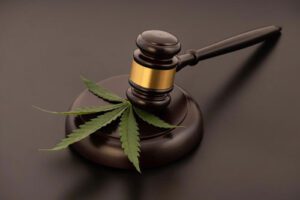 The New Jersey Supreme Court continued in relevant part: Our analysis is not an implied repeal. Instead, it is the discharge of our “affirmative duty to reconcile” the various legislative pronouncements, In re Referendum on Trenton Ord. 09-02 (2010), “so as to give full effect to each constituent part of an overall legislative scheme,” State v. Hodde (2004). Here, examining the “overall scheme” in full, it is apparent that the Legislature intended persons who have previous marijuana conditional discharges in “any case” to become eligible “by operation of law” to be considered for PTI in the future — even though more explicit statutory language could have been used to accomplish that.
The New Jersey Supreme Court continued in relevant part: Our analysis is not an implied repeal. Instead, it is the discharge of our “affirmative duty to reconcile” the various legislative pronouncements, In re Referendum on Trenton Ord. 09-02 (2010), “so as to give full effect to each constituent part of an overall legislative scheme,” State v. Hodde (2004). Here, examining the “overall scheme” in full, it is apparent that the Legislature intended persons who have previous marijuana conditional discharges in “any case” to become eligible “by operation of law” to be considered for PTI in the future — even though more explicit statutory language could have been used to accomplish that.
We recognize that, as the Middlesex County Prosecutor has noted, the Legislature expressly provided in a companion bill enacted with CREAMMA that previous marijuana conditional discharges could no longer be considered in bail and pretrial detention decisions, see L. 2021, c. 19, §§ 9-10, but did not include a similar express prohibition for the PTI setting. But there are reasons why such an explicit amendment might have been viewed as necessary in the specific context of pretrial release and bail reform.
For one thing, as we have already noted, Section 21 of the general expungement statute concerning bail and pretrial release decisions, unlike Section 20 concerning PTI, used the mandatory term “shall” rather than “may.” The Legislature therefore needed to enact specific language to alter the mandate of Section 21.
Additionally, under the Criminal Justice Reform Act of 2014 (CJRA), the pretrial confinement of persons upon their arrest implicates distinctive public policy issues of individual liberty and public safety, arising at the outset of the criminal process. In light of that, the Legislature understandably could have wanted to make doubly sure that a previous marijuana conditional discharge would not provide the grounds to incarcerate an arrestee as a supposed public safety risk under the factors in N.J.S.A. 2A:162-20. This is especially important because in some instances, such a prior conditional discharge might be the only disposition shown on the arrestee’s criminal record.
A possible explanation for the Legislature’s silence regarding PTI bars is that there were many delays and compromises that accompanied the CREAMMA statutes. The parties likely agreed to leave some issues unaddressed and for our courts, rather than create additional delays.
